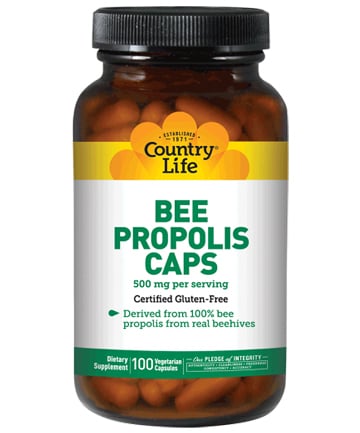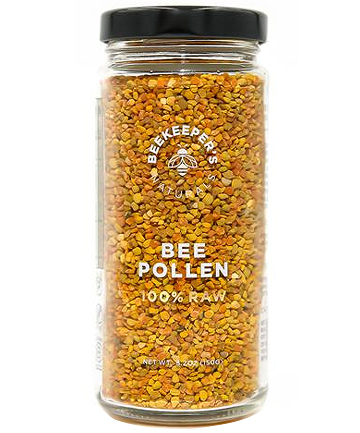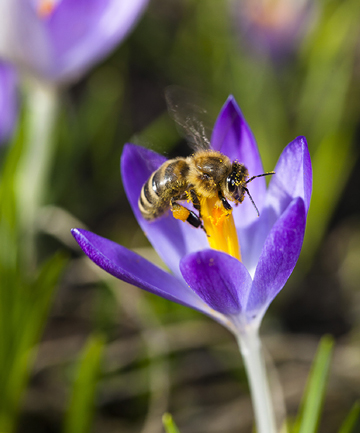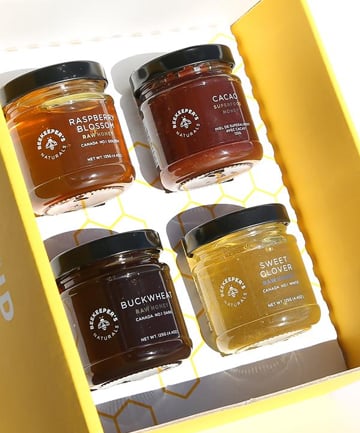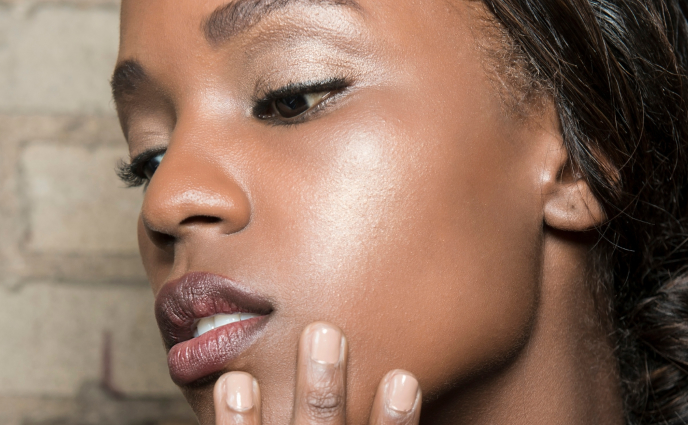Other benefits include the fact that honey has low oxygen, high sugar and low pH, which helps prevent bacterial infections that require oxygen (such as MRSA), according to Wilson-Rich. "Honey is also used for facial treatments to reduce aerobic bacterial loads and clear up complexion, but out of all the bee products that improve human health, it's actually venom that has the most benefits. Lip plumpers and skin firmers are common examples of this natural product in cosmetics."
For her part, Stein singles out royal jelly as being another notable bee product. "Bees make this divine substance known as royal jelly, which I like to think of as a brain-boosting longevity elixir. As the exclusive food source of the queen bee and newborns, it's a powerful hive superfood. Royal jelly contains high amounts of proteins, lipids, vitamins, enzymes and minerals — and its impressive nutrient density has not been able to be replicated by science. For humans, royal jelly is great for naturally supporting memory, concentration and focus."
If you're interested in learning more about bees and their many beneficial by-products, Wilson-Rich suggests doing some supplementary reading. "Check out the latest manuscript from our 501(c)3 nonprofit Urban Beekeeping Laboratory about Apitherapy in the journal Frontiers in Ecology and Evolution where we review the ways in which bee products help human health. There are six bee products total — honey, beeswax, propolis, venom, royal jelly and pollen," he says.
Having highlighted these amazing benefits it's important to remember that bees are currently in massive danger.
"Anyone who eats food needs bees because they pollinate over 70 fruit and vegetable crops that we rely on for healthy eating," says Wilson-Rich. "Bees also pollinate hay and alfalfa crops that feed our cattle industry yet over 40 percent of all honey beehives die in the U.S. each year, and that amount is even higher in areas with harsh winters. Can you imagine if we lost 40 percent of people annually, and if those were the food-producing people? It's untenable for the survival of humanity."
Image via Konrad Wothe/Lookphotos/LOOK/Getty
One of the biggest issues bees are facing is that they're having a hard time finding food that isn't coated in harmful pesticides. "Many farmlands use tons of toxic pesticides that absolutely decimate hives and indiscriminately kill pollinators," says Stein. "The EU has begun putting bans on these harmful chemicals, like neonicotinoids, but North America has been slow to action." Changing legislation might be a long process that the average person has no connection to, but we can all help in a big way just by changing our shopping habits. "To support bees, buy organic and pesticide-free as often as you can and from brands that prioritize sustainability," says Stein. "Another easy way to make a real impact on your local bee population is to plant a bee garden. Bees need access to clean food, so providing our pollinators with organic, untreated plant life to feast on is one of the best ways to help." And yes, bees can thrive in urban environments!


